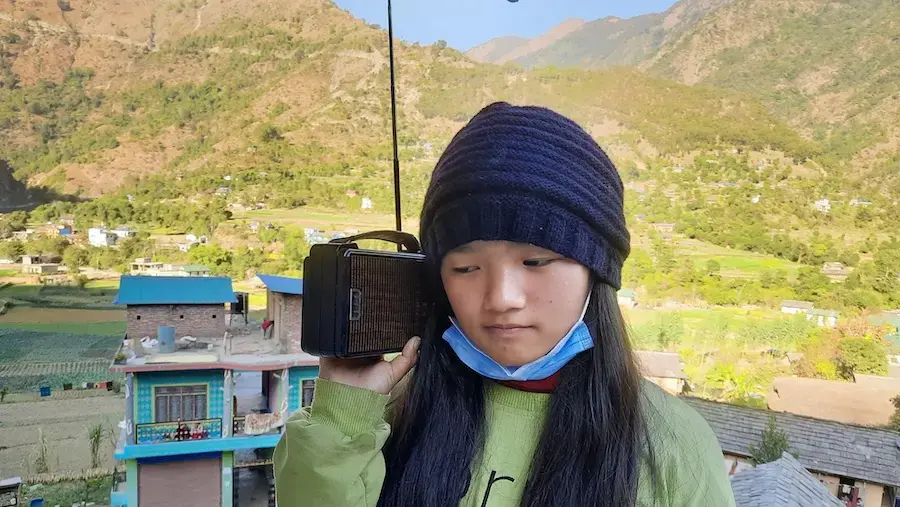Tech innovations empower girls amid COVID-19. But digital divides could hinder progress.
Tech innovations empower girls amid COVID-19.
But digital divides could hinder progress.
The proliferation and innovative use of digital technology give young people more opportunities than ever before - even helping some girls avoid or escape child marriage and other harms amid COVID-19.
But unequal access to technology - in the context of gender, geography and socio-economic conditions - threatens to leave large swaths of girls even further behind.
As we embrace the power of digital tools to achieve development goals, we must bridge the ‘gender digital divide’ so all girls can avail of the services that keep them from harm and open up opportunities to thrive.
Get inspired by these trailblazers in the Asia-Pacific region who are leveraging technology to support girls’ bodily autonomy and amplify their voices, especially those vulnerable to harmful practices like child marriage.
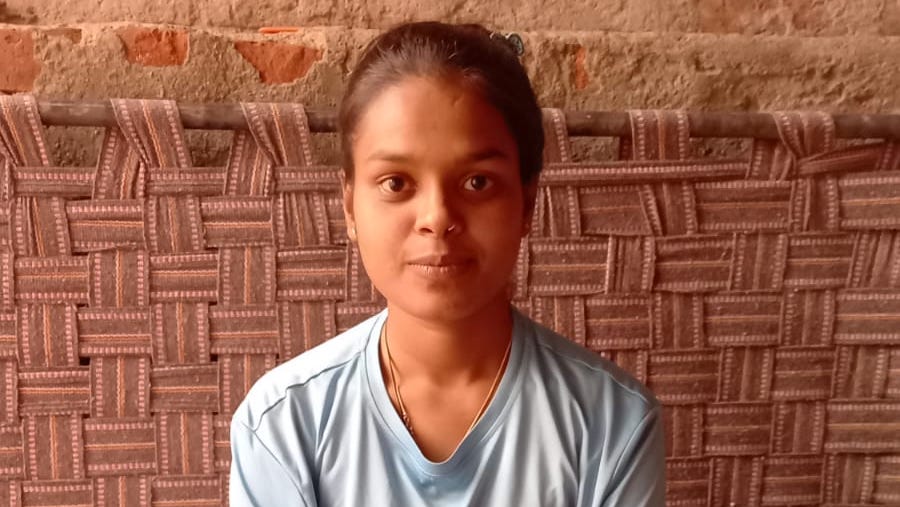
In India, Ragini learned of a 14-year-old girl in her community who was to be married to a 40-year-old man. She immediately sprang into action to prevent this from happening.
“The girl told me she did not want to get married and wanted to study so I did whatever I could to help her. Now she is studying.”
Ragini is a volunteer with Naubat Baja, a mobile-phone edutainment channel launched by UNFPA in partnership with the Government of India’s Rajasthan state to address issues of adolescents’ wellbeing, empowerment and health. The initiative also seeks to address gender-based violence and harmful practices such as child marriage and gender discrimination by leveraging the rapid proliferation of mobile phones in media-dark areas of Rajasthan, especially among young people.
By dialing a local number, users get a call back with a 15-minute recording of free edutainment content. The recordings share information about government schemes, especially on adolescent reproductive health; stories about social issues interspersed with popular songs; and inspiring stories of change agents describing their personal journeys overcoming harmful practices.
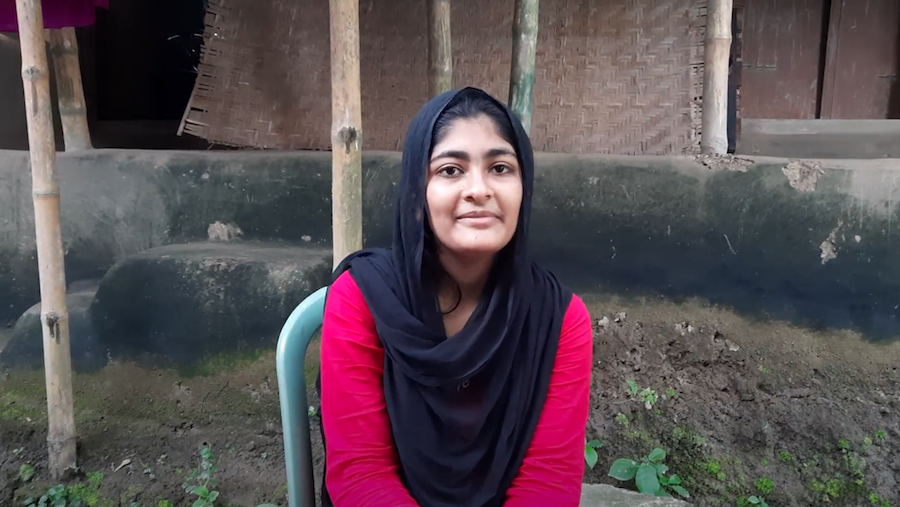
In Bangladesh, Sadia received information about ‘Alapon,’ a helpline for adolescents supported by UNFPA and the Ministry of Education.
Alapon provides psychosocial support and information on sexual and reproductive health and other issues relevant to adolescents throughout Bangladesh, such as gender-based violence and harmful practices like child marriage.
While the majority of calls are typically from boys, the number of female callers dramatically increased in August 2020: Flashcards with information about the helpline had been included in Menstrual Hygiene Management kits distributed to adolescent girls affected by Cyclone Amphan.
“I hope Alapon will help to reduce social stigma for menstrual and mental health issues in our community,” says Sadia, who learned about the helpline through the kit she received. “Because of Alapon, we may also be able to prevent child marriages.”
Alapon counselors host weekly Facebook Live sessions to address adolescents’ questions and concerns. These are uploaded to YouTube afterwards, expanding their reach even further. UNFPA provides laptop computers to rural schools, enabling young people to access the Facebook Live sessions.
In 2020, the helpline was expanded to cover the Rohingya camps in Cox’s Bazar. A separate number was established, which the Rohingya community can call to receive psychosocial support in their dialect.
Special provisions are underway to ensure adolescent girls in the camps can access the helpline; for instance, mobile phones are placed with community health workers and in designated safe spaces for women and girls. Alapon Live sessions are also broadcast on the camps’ local radio channel to reach those without access to the national Facebook Live sessions. UNFPA distributes radios containing an SD card preloaded with past Alapon Live sessions to adolescents, as well.
Additional plans to develop an Alapon digital platform are underway, which will reach even more young people.
Read how Alapon is empowering girls like Sadia.
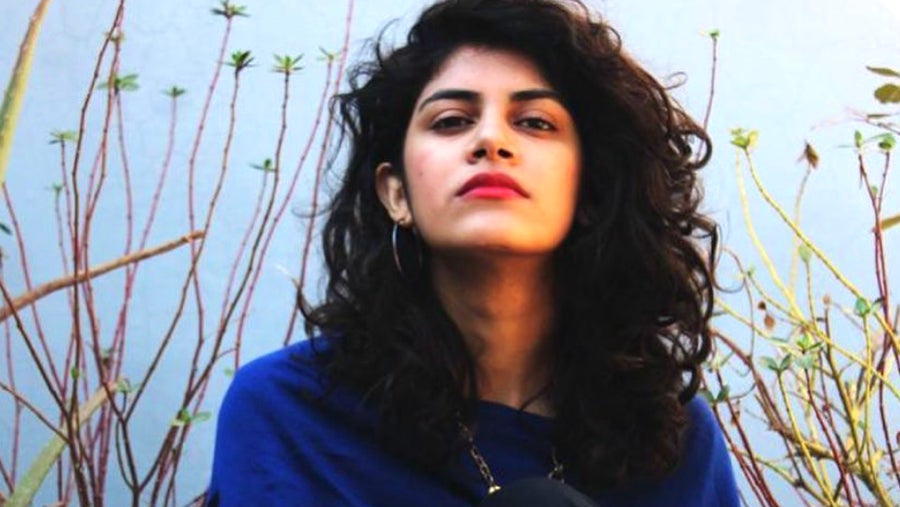
In Pakistan, Yusra Hussain juggles dozens of conversations through her online chats with girls, many of whom are experiencing gender-based violence or harmful practices, such as being forced into child marriages. For example, she’s been chatting with a girl whose family keeps her in a room after school and just wants to marry her off, regardless of whether doing so subjects her to an abusive marriage.
Yusra’s grassroots organisation, Agahee Pakistan, is dedicated to empowering and raising girls’ and women’s awareness about sexual and reproductive health and rights.
While the COVID-19 pandemic has suspended in-person training sessions in schools, this hasn’t stopped her journey. Yusra uses online platforms like Skype and Facebook Live to keep the conversation going, enabling her to maintain exchanges with hundreds of young people and women across the country.
But knowing that digital access is limited in rural areas, in-person sessions will remain a key part of Agahee Pakistan’s strategy, once COVID-19 conditions allow return to schools.
“It really keeps me going, the fact that in a span of just four or five years I have seen people in Pakistan talking about sexual and reproductive health. I have seen women in Peshawar and Karachi and in the most remote areas coming out to the streets and chanting and protesting about their rights.”
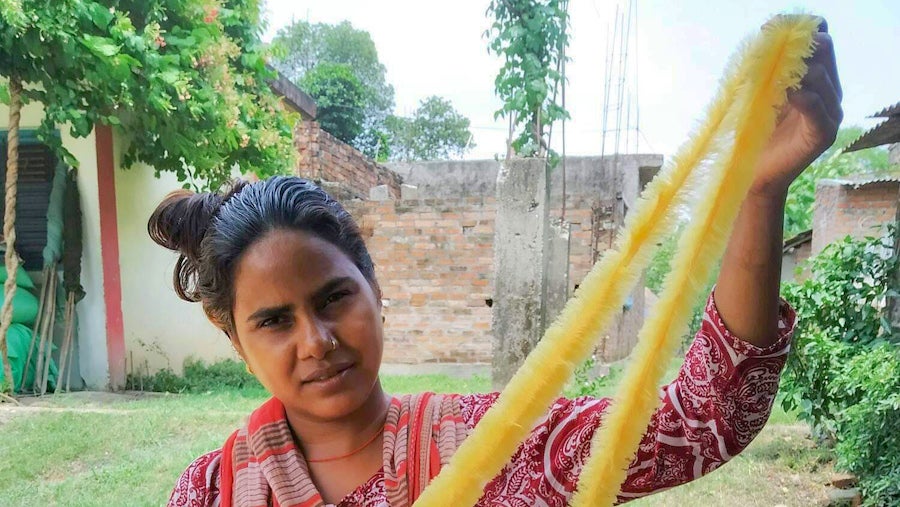
In Nepal, Bidhya Sahani had to leave school after the seventh grade in southern Nepal’s Kapilvastu district along the border of India. Her family was struggling financially and needed more help with household chores. They also had plans to marry her off. She was devastated.
Soon after dropping out of school, Bidhya joined Rupantaran, a popular social and financial skills programme for adolescent girls to prevent child marriage. Rupantaran (which means ‘metamorphosis’ or ‘transformation’ in the Nepali language) taught Bidhya about human rights violations adolescent girls face like child marriage and gender-based violence. She also learned how to exercise her rights and develop support networks to prevent and handle these issues.
“Rupantaran was a turning point in my life,” Bidhya says.
When the COVID-19 pandemic hit, Rupantaran continued reaching adolescent girls amid lockdowns via local radio broadcasts in combination with personal follow-up from peer leaders, either by phone or home visit.
Disparities in access to digital technology - especially in remote places - means this traditional medium is far more effective at leaving no one behind.
In fact, because of radio broadcasts, Rupantaran was able to maintain contact with all girls enrolled in the programme - over 99 per cent of whom remained unmarried amid the COVID-19 lockdown period.
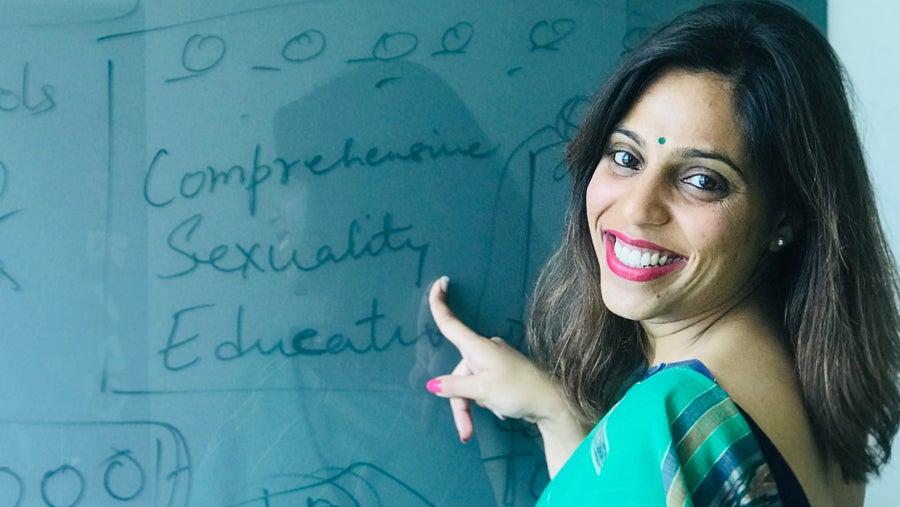
In India, Vithika Yadav is an activist providing platforms and empowering young people with digital media skills to openly discuss complex issues and learn their rights.
Through the organisation she co-founded, Love Matters India, digital media tools help spark norm-shifting conversations on typically taboo topics like gender inequality, harmful social norms, intimate partner violence and sexual abuse, consent, sexual and reproductive health rights, and the culture of shame and silence. Love Matters India also links young people to related services, especially amid the COVID-19 pandemic.
Sexuality information initiatives like Love Matters India contribute to safe and respectful use of digital platforms among adolescents by teaching them to safely navigate the digital space.
Through the organisation’s Mobikaar programme, girls learn to use mobile phones for public interest journalism; many create content on gender-based violence, early marriage, harmful social norms, and other issues related to gender inequality.
Working with some of the most disadvantaged communities, Love Matters India makes special efforts to engage girls in their youth networks. Information is disseminated through community radio services and mobile phones preloaded with content, to avoid Internet access issues.
“Young people have their own digital space now,” Vithika says. “They are more vocal about it. They're talking about it, they understand it and they feel supported. They don't feel alone in this journey.”

